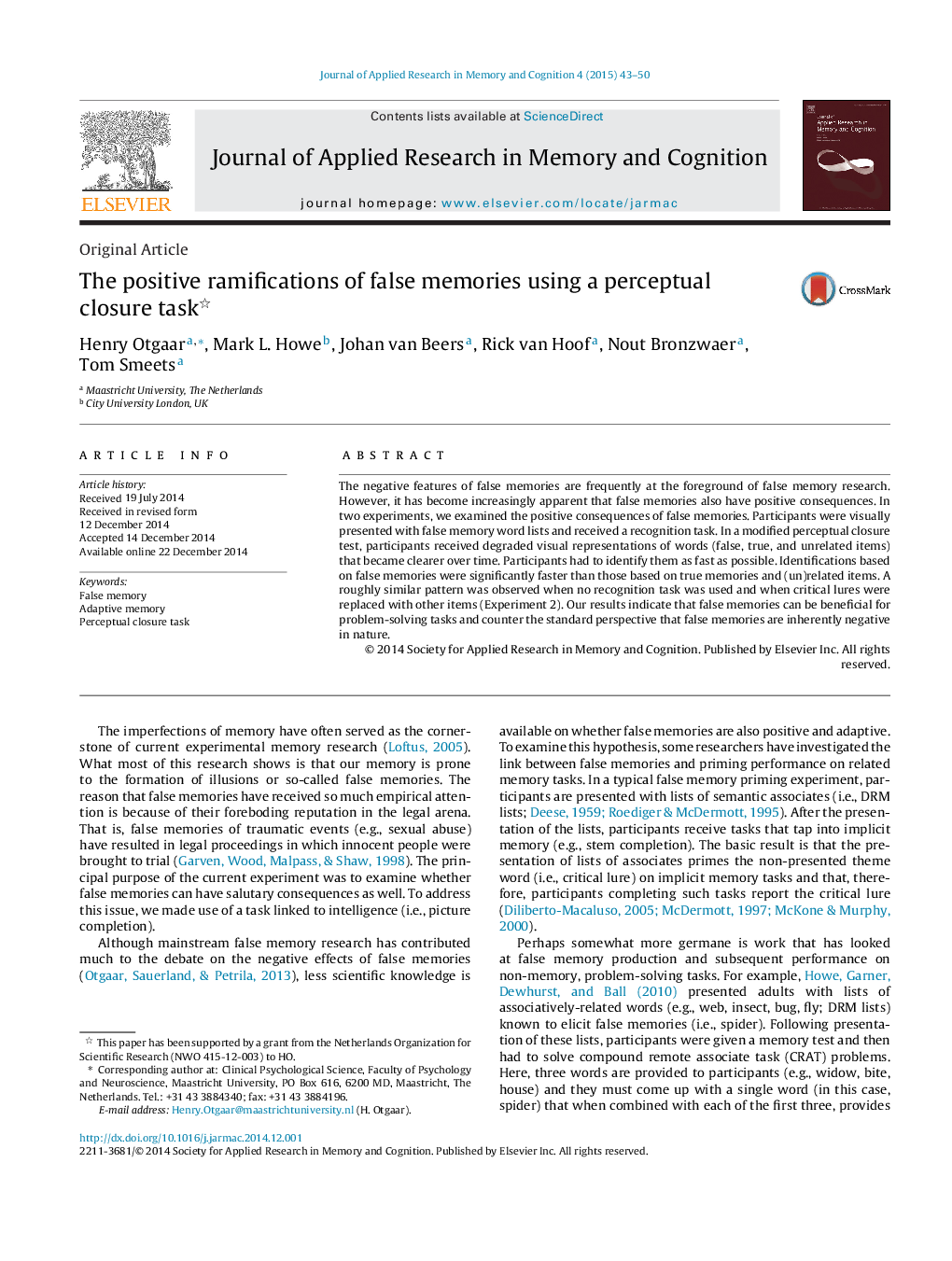| Article ID | Journal | Published Year | Pages | File Type |
|---|---|---|---|---|
| 881600 | Journal of Applied Research in Memory and Cognition | 2015 | 8 Pages |
•Examination of the positive effects of false memories.•Using a perceptual closure task.•False memories served as better primes than true memories.
The negative features of false memories are frequently at the foreground of false memory research. However, it has become increasingly apparent that false memories also have positive consequences. In two experiments, we examined the positive consequences of false memories. Participants were visually presented with false memory word lists and received a recognition task. In a modified perceptual closure test, participants received degraded visual representations of words (false, true, and unrelated items) that became clearer over time. Participants had to identify them as fast as possible. Identifications based on false memories were significantly faster than those based on true memories and (un)related items. A roughly similar pattern was observed when no recognition task was used and when critical lures were replaced with other items (Experiment 2). Our results indicate that false memories can be beneficial for problem-solving tasks and counter the standard perspective that false memories are inherently negative in nature.
